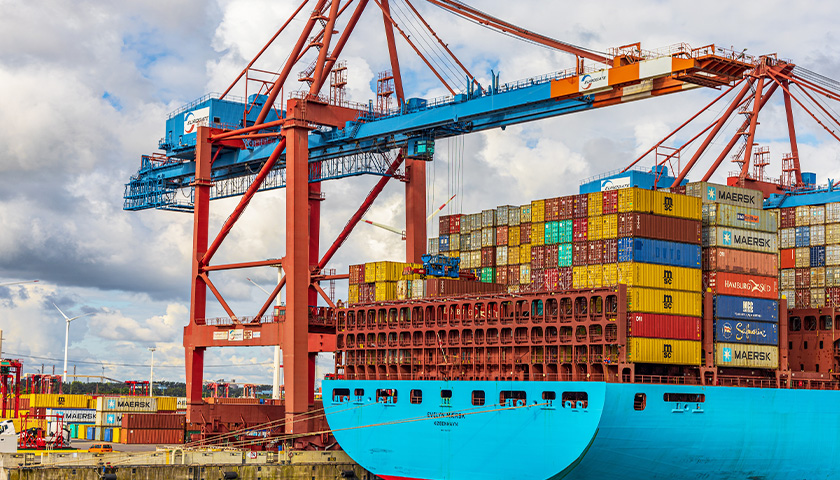by T.A. DeFeo
Charleston’s loss has been Savannah’s gain.
The Peach State’s ports could be picking up additional business amid an ongoing dispute between the South Carolina State Ports Authority and the National Labor Relations Board.
In December, the NLRB reversed an administrative law judge’s ruling that the International Longshoremen’s Association’s boycott barring carriers from using the Hugh K. Leatherman Terminal in North Charleston until union members handle all container work at the port was unlawful.
A right-to-work group and South Carolina Gov. Henry McMaster have joined the call for a federal appeals court to overturn the union’s “secondary boycott” of a new terminal in the Palmetto State. The court is set to hear oral arguments in the case on June 6 in Baltimore.
“If you’re a Georgian, Savannah is benefiting dramatically from this union action against the Leatherman port,” National Right to Work Foundation President Mark Mix told The Center Square.
“During the supply chain crisis that has dissipated a bit today, basically ships were coming into Charleston, refueling and then going back out to wait to get unloaded in Savannah,” Mix added. “So, because of the capacity of the South Carolina port system, while it was setting records, there was the newest and most technologically advanced port that was not being used, and that would be the Leatherman terminal in the Port of Charleston system.”
But Mix said the South Carolina fight could impact officials in Georgia.
“The reason why it matters to Georgia is because if Georgia decides they want to expand or build new port capacity, I’m assuming the union will exercise the same types of powers that they’re exercising at Leatherman, saying that we have to have all the jobs,” Mix said. “What they believe their contract says is that any new capacity, any new ports, would not be governed by the so-called hybrid labor agreement that allows non-union workers to work with union workers.”
– – –
T.A. DeFeo is a contributor to The Center Square.
Photo “Port Containers” by Dominik Lückmann.








